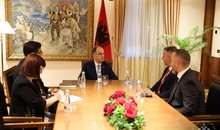
 Flash News
Flash News
Latvia-Albania/ The first half closes, the result is tied
New York Times: Belgrade's "General Staff" Affair Has Shocked America Too
One of the main players of the national team is injured before the match with Latvia
The Traffic Police of Vlora arrests 16 drivers
Why does Blendi Kajsiu analyze 'Berishism' in a test tube, not in real life?
More war, fewer rewards, what does this mean for the Russian invasion of Ukraine?
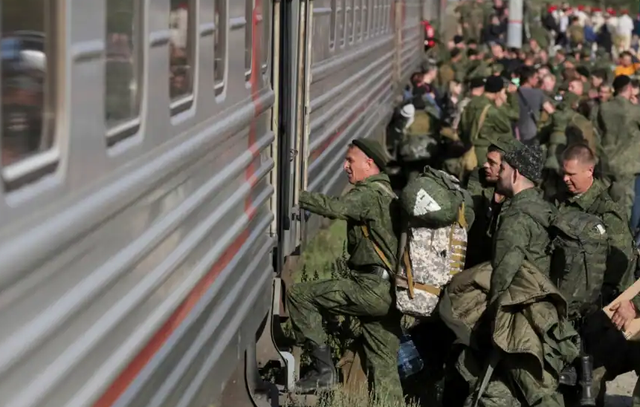
More than 40 months after its launch, Russia's war against Ukraine continues with intensity.
Moscow is making progress elsewhere, supported by thousands of volunteers, who are lured by high salaries and other lucrative benefits.
In some areas, bonuses for new recruits exceed a year's salary.
This amount has changed many household economies and increased support for the conflict.
Although casualties are at levels unseen since World War II, they have not stopped recruitment.
According to a new estimate, Russia will have over 1 million killed or wounded by the summer. But that situation is changing.
In recent weeks, at least five regions in Russia have reduced one-time recruitment bonuses for new volunteers.
On June 5, the Volga region of Bashkortostan became the latest to halve pay for new recruits.
Experts explain that this situation is partly related to budgetary constraints, as regional governments are facing financial difficulties in covering these expenses.
"I believe that, on the one hand, this is related to the tense state of the regional budget," an economist from Bashkortostan tells Radio Free Europe.
"On the other hand, this could be an indication that the need to withdraw contractual soldiers is no longer so urgent," adds the expert, who asked to remain anonymous to avoid prosecution by the authorities.
Reduction of rewards
For most of the war, Russian forces have used primarily direct infantry attacks to defeat Ukrainian positions – which has caused an extremely high number of casualties.
Fearing the public backlash, the Kremlin has avoided declaring general mobilization.
Instead, the authorities have used a combination of forces: private mercenary companies like Wagner have conducted independent recruitment, or prisoners have been taken out and forced to register, promising them amnesty after completing their service.
Since 2023, the Kremlin has also set recruitment quotas for regions, encouraging local governments to organize their own campaigns and offer rewards.
According to Janis Kluges, who tracks Russia's war spending at the German Institute for International and Security Affairs in Berlin, these bonuses, along with money from the Defense Ministry, amount to up to $24 million a day across the country.
In early 2025, Kluge estimated that between 1,000 and 1,500 men were signing up each day to fight.
The average bonus in the 37 regions he monitored was 1.4 million rubles, or about $17,700 – much higher than the average annual salary in most regions.
Last month, Russian President Vladimir Putin stated that Russia was recruiting around 60,000 men per month.
In Bashkortostan, the regional government has gradually increased recruitment bonuses: from 205,000 rubles in the summer of 2022, to 505,000 rubles two years later, and then, in early 2025, tripled them to 1.6 million rubles (about $20,190).
Now, according to a decree dated June 5, signed by the regional head, Radiy Kharibov, this amount has been reduced to 1 million rubles (about $12,620).
The regional capital, Ufa, which has its own recruitment bonus, has also reduced the amount it offers for recruitment.
Bashkortostan is one of the regions with the highest number of soldiers killed in Ukraine, according to data collected by Radio Free Europe/Radio Liberty's Tatar-Bashkir Service, the BBC in Russian, and independent media outlets such as Mediazona.
Other regions that have reduced recruitment bonuses include: Yamal-Nenets and Nizhny Novgorod.
In Samara, the pay for new soldiers used to be the highest in the country – 3.6 million rubles (about $45,430) – but since the end of February it has been reduced to 2.1 million rubles (about $26,500).
Russia's adapted economy
After the Kremlin launched a full-scale invasion of Ukraine in February 2022, Western governments imposed sanctions on Russia to force it to stop the aggression.
However, the Russian economy proved more stable than many experts predicted, thanks in part to continued revenues from oil and gas sales abroad.
The Kremlin has invested money not only in recruiting soldiers, but also in adapting the economy, expanding military industrial capacities to produce tanks, weapons and bombs.
But this transformation has weighed on the economy, increased inflation, and forced the central bank to raise interest rates, making it more expensive for citizens to obtain loans for housing or large products.
According to some European forecasts, Russia's economic growth is expected to slow this year to 1.7 percent, or up to 2 percent, according to some other estimates.
Abbas Gallyamov, an exiled political analyst and former adviser to Putin, says the main reason why regions are cutting payments to recruits is a lack of money.
"They are running out of funds," he tells Radio Free Europe./REL
Latest news

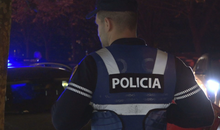
69-year-old man jumps from building in Tirana, dies on the spot
2025-06-10 22:45:41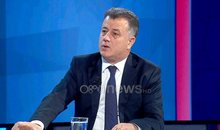



Latvia-Albania/ The first half closes, the result is tied
2025-06-10 21:43:14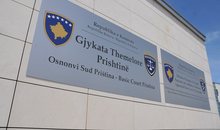
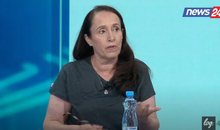
"Albania is aging at a rapid pace", Staticienia: The situation is alarming
2025-06-10 21:28:21
Albania takes advantage over Latvia, Rei Manaj scores
2025-06-10 21:20:12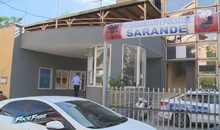
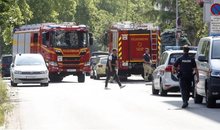
Girl from Kosovo victim of massacre in Austria, family reacts: Great pain!
2025-06-10 21:15:48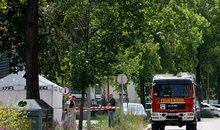
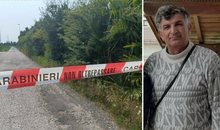
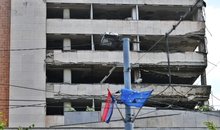
New York Times: Belgrade's "General Staff" Affair Has Shocked America Too
2025-06-10 20:16:35



KPA is familiar with the submissions in the vetting of prosecutor Robert Kote
2025-06-10 19:12:21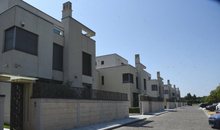


Sa është pasuria e Dua Lipës?
2025-06-10 18:31:21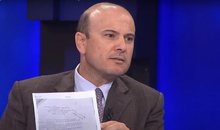
How Edi Rama defended the delinquent Irena Gjoka at every step
2025-06-10 18:15:57
From 1987 to 2025, the biggest attacks that have rocked Europe
2025-06-10 18:06:12

"The last days in Tirana"/ Shpat Kasapi separates from his wife?
2025-06-10 17:39:27
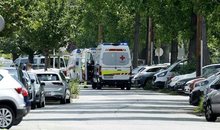
The bloody attack in Austria, among the victims is an Albanian teenager
2025-06-10 16:59:41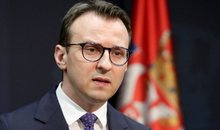
Serbia's Chief Negotiator: There will be a trilateral meeting in Brussels today
2025-06-10 16:38:59
The Traffic Police of Vlora arrests 16 drivers
2025-06-10 16:31:52
Why does Blendi Kajsiu analyze 'Berishism' in a test tube, not in real life?
2025-06-10 16:30:59
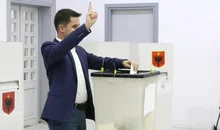
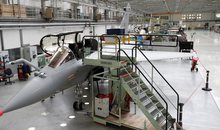


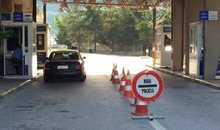


Katy Perry is "attacked" by a fan on stage in the middle of the song!
2025-06-10 15:10:03
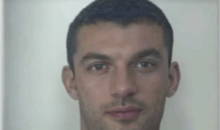
Erion Alibej Confesses: How We Killed Talo Çela's Brother and Emiljano Ramazan
2025-06-10 14:41:28
From orange peels to bananas, discover the foods that help you with stress
2025-06-10 14:32:20
Tried to burn neighbor with gasoline, 32-year-old arrested in Librazhd
2025-06-10 14:21:02
Russian propaganda targeted the European Community summit in Tirana
2025-06-10 14:05:39
Teenager arrested in Vlora with cannabis and cocaine
2025-06-10 13:51:29



Former Prime Minister of Kosovo, Bujar Bukoshi, passes away
2025-06-10 13:02:39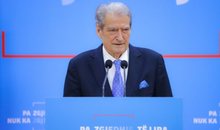

Here's how to adjust the air conditioner during hot days
2025-06-10 12:38:47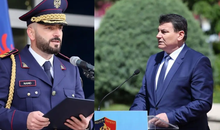
The names of 13 candidates for the head of the BKH are published
2025-06-10 12:23:05


Berisha: Aida of the BKH reported every morning to Ardi Veliu, Edi Rama's spy
2025-06-10 11:55:11
Shooting at a school in Austria, 5 reported dead
2025-06-10 11:50:31

45 thousand euros found in the van that arrived at the Port of Vlora
2025-06-10 11:24:29

Berisha leaves SPAK: Irena with 5 surnames has filed a lawsuit for insulting me
2025-06-10 11:04:24
It's happening again, the Language and Literature exam theses are out
2025-06-10 10:56:13
Do we need vitamin D even in the summer?
2025-06-10 10:45:52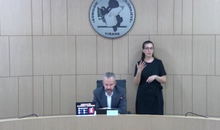
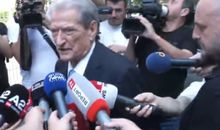
Sali Berisha appears in SPAK
2025-06-10 10:29:33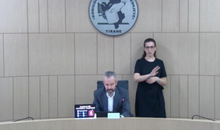

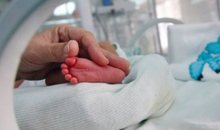
The world faces a decline in fertility rates
2025-06-10 10:01:21
Serious in Greece! Albanian parents forget baby in car, little girl dies
2025-06-10 09:41:31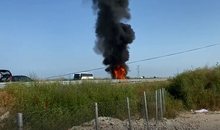
Car burns on Kashar-Thumanë highway
2025-06-10 09:23:39
Today is the match against Latvia, how is the national team expected to line up?
2025-06-10 09:13:13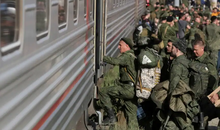
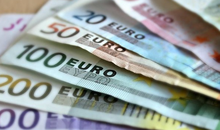
Foreign exchange, how much foreign currencies are bought and sold for today
2025-06-10 08:52:22


Horoscope, what do the stars have in store for you today?
2025-06-10 08:15:14
Weather forecast/ How temperatures will vary throughout the day
2025-06-10 08:00:30
Posta e mëngjesit/ Me 2 rreshta: Çfarë pati rëndësi dje në Shqipëri
2025-06-10 07:45:26
"He is a fool", Tare warns: In a century we will no longer have Spaç
2025-06-09 22:56:19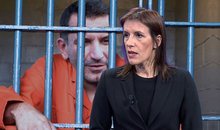

"We have facts", Vokshi: 20 SP MPs are gang representatives
2025-06-09 22:14:55
Spy novel legend Frederick Forsyth dies
2025-06-09 21:49:01


Two police officers finish testifying in the 'Banjska' case
2025-06-09 21:14:27

Skype is shutting down after more than 2 decades
2025-06-09 20:54:17
Inter officially presents new coach, Cristian Chivu
2025-06-09 20:43:51
Inflation situation in Albania / We continue to pay more for food
2025-06-09 20:32:02

Latvia-Albania, match without captain
2025-06-09 20:07:54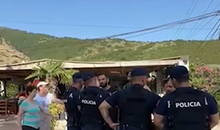
Residents clash with IKMT and police in Jalë: This is murder!
2025-06-09 19:47:24
Spaçi/ Former prisoners and young activists join forces to protect memory
2025-06-09 19:35:10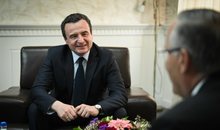
Surprising development in Kosovo, Kurti meets with Bedri Hamza
2025-06-09 19:16:07
57-year-old man in Postribë shot himself with a shotgun, transported to hospital
2025-06-09 19:05:03
SPAK summons Sali Berisha tomorrow
2025-06-09 18:44:58
Loredana Brati breaks the silence about Jozi's new romance
2025-06-09 18:33:10

Are single women happier than single men?
2025-06-09 18:18:27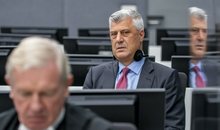

Plague disease, 150 small cattle die in Val i Martanesh
2025-06-09 17:47:43